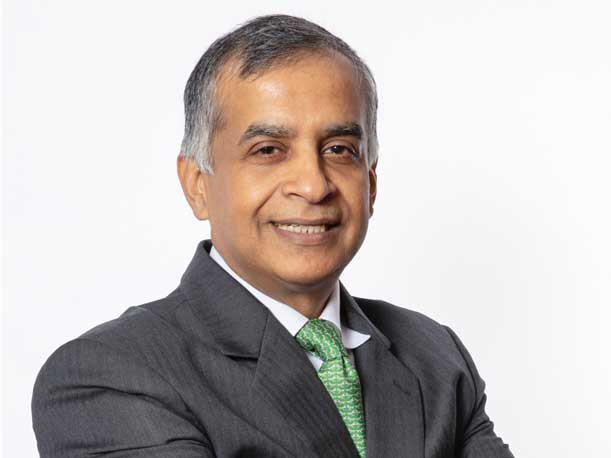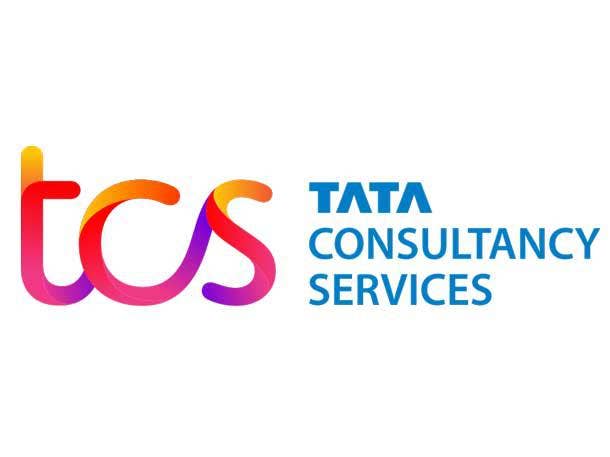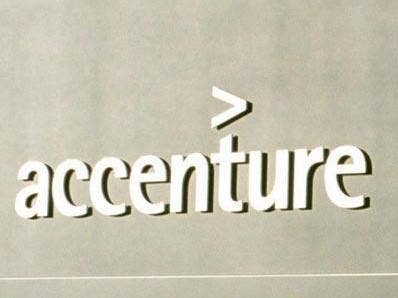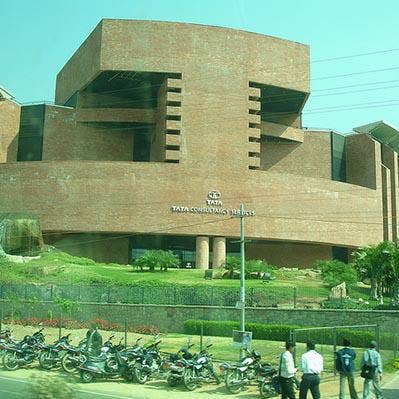TCS North America Chairman: Our ‘Talent Cloud’ Continuously Upskills Employees
‘Our model is really continuous training and allocating people for the right requirements. … The thing is, in this business, technology changes rapidly, so we need to continuously upgrade talent. And that’s why we came up with this talent cloud model, which is really helping us tremendously,’ says Suresh Muthuswami, chairman of North America for Tata Consultancy Services.

From India To The World: Global Business With Local Touch
Tata Consultancy Services, or TCS, is one of the world’s largest global systems integrators and MSPs. Founded in India with U.S. headquarters in Manhattan, N.Y., next to Grand Central Station, TCS has over 600,000 employees worldwide who generated over $25 billion in revenue over the past year, giving it the No. 2 spot on the CRN 2022 Solution Provider 500.
For TCS, North America accounts for over 50 percent of the company’s global revenue, said Suresh Muthuswami, chairman of the company’s North America business. Muthuswami, in an exclusive interview with CRN, said that his company’s success in the region depends solidly on how it develops and retains the 53,000 people it has in North America.
For instance, Muthuswami said TCS has a focus on developing what the company calls “contextual masters,” or people who not only understand the technology but also the business domain industry knowledge that together solves industry problems as well as customer-specific problems.
[Related: 2022 Solution Provider 500]
“When people have been with the company for a long time, not only do they understand the technology, they understand technology doesn’t by itself solve problems,” he said. “You need to know the industry. You need to know the context of the business. You need to know the client’s business. So many of our employees have been serving clients for a long time. So they’ve built what we call internally ‘contextual knowledge.’ That knowledge helps solve specific business problems.”
TCS has invested heavily with local academic partners as a way to better innovate in local markets. For instance, North American is the site of two new “Pace Ports” that were opened in 2022 in partnership with Carnegie Mellon University in Pittsburgh and the University of Toronto. TCS also has a partnership with Cornell University’s Cornell Tech Innovation Center in Roosevelt Island in Manhattan, Muthuswami said.
In addition to these partnerships, TCS develops its labor force via what Muthuswami called the company’s “talent cloud,” which focuses on upskilling its employees.
“Our model is really continuous training and allocating people for the right requirements. … The thing is, in this business, technology changes rapidly, so we need to continuously upgrade talent. And that’s why we came up with this talent cloud model, which is really helping us tremendously.”
Muthuswami also discussed with CRN what he and TCS see going forward when it comes to macroeconomic issues like inflation, and the impact the COVID-19 pandemic has had on the company and its customers now and going forward.
There’s a lot going on at the world’s second-largest global systems integrator and MSP. To better understand this large and complex company, here is what Muthuswami had to say.

Define Tata Consultancy Services.
TCS is an IT consulting business services organization. We help Fortune 2000 companies with their digital transformation journeys. We are global, headquartered in Mumbai, but operate in 55 countries. About 630,000 people are employed by TCS globally. In North America, including Canada, we have about 53,000 people. In the U.S., about 47,000 people. We tend to work with lots of Fortune 500 companies. Those are our largest clients.
TCS is about $25-plus billion in revenue. North America including Canada is about 53 percent of that revenue. Our other big markets are Europe and the U.K. [We also] have presences in Latin America, Australia, Asia, Japan and all over all over the world.
What’s the big differentiator between TCS and what some of your competitors do?
First, we are a customer-centric company with a long-term focus. If you talk to any of our clients, they will talk about TCS taking a long-term view in the relationship. Second is, we invest in people and what we call ‘contextual knowledge.’ When people have been with the company for a long time, not only do they understand the technology, they understand technology doesn’t by itself solve problems. You need to know the industry. You need to know the context of the business. You need to know the client’s business. So many of our employees have been serving clients for a long time. So they’ve built what we call internally ‘contextual knowledge.’ That knowledge helps solve specific business problems. Once we do that, then we can take the solution to other clients and other industries. So that’s a big differentiator.
Third is, we invest a lot in our employees. We’re upskilling them because technologies change so fast. So we invest a lot in technologies. In fact, about one-third of our new business needs are fulfilled by upskilling our employees.

Channel trends today
You talk about contextual knowledge. But wouldn’t any global integrator or global consultant make that same claim?
In TCS’ context, we have a very specific program where we identify these people, and we nurture them. We have about 50,000 people who are what we call ‘contextual masters.’ That‘s a big differentiator. And also, not many people leave us. TCS’ attrition rate is the lowest in the industry. We are able to retain these people who are really staying with us because of our brand. We treat employees well, but there’s also the kind of work they do. They enjoy long-term relationships with our clients. They are so passionate about solving business problems, and so they stay with TCS. So that’s why we have 50,000 contextual masters, as we call them.
What is a contextual master?
It is a person with tacit knowledge not only of technology, but business domain industry knowledge that can help solve industry problems as well as client-specific problems.

Who would you consider to be TCS’ primary competitors?
IT services is a very competitive field, as you know. We have a number of competitors, including multinationals like Accenture. There are India-based companies. There are companies in some of the niche areas, whether it is cloud or digital transformation or cybersecurity. We have a large set of competitors.
Do they include U.S. companies like DXC or Kyndryl?
Obviously, U.S. companies are also our competitors. IBM is a competitor, but also a partner. It varies based on customer situations and what they want to accomplish and so on. But when customers come to us, we have large capabilities, whether it is application management or cloud transformation or cybersecurity, or implementing large integration programs with SAP or Oracle or Salesforce. TCS has solid strength, and our teams know the customers, industry, and domain and systems because we‘ve been working with our clients for a long time.

TCS is a subsidiary of India-based Tata Group. How big a part of Tata Group is TCS?
A couple of dimensions. Tata Group is about $120 billion or so in revenue. Tata Group includes major companies like Land Rover Jaguar, Tata Steel, Tata Power, Tata Motors and a number of large companies. TCS has about $25 billion of that $120 billion in revenue. Tata Group also has over 935,000 employees, but a large number of employees are in TCS, 600,000-plus. We are a significant part of the business for various reasons. In fact, our current chairman was formerly the CEO of TCS. That proves that technology plays in all traditional industries whether it is power, automobile or chemicals. We are even in the consumer space. We operate hotels in New York. The Taj Pierre in New York is a Tata Group hotel. So the elevation of the TCS chairman to Tata Group chairman shows that technology plays an important role in all industries. He will talk about artificial intelligence, machine learning and data, why data is so important, and so on.
Given TCS’ size, has Tata Group ever considered spinning it out as a separate organization?
The group was founded on the principle that the enterprises are there to serve the community. So whatever comes from the community should go back to the community. So CSR [corporate social responsibility] is a big focus of the group. All the companies are independent companies. Many of them are publicly listed. TCS is listed on the BSE, or Bombay Stock Exchange, and also on the National Stock Exchange in India. It’s an independent company with a professional CEO who is my boss, Rajesh Gopinathan. And some [Tata Group] companies are publicly listed in India, some are private, and one or two are listed in the U.S. stock exchanges.

It’s common for India-born IT companies to have the majority of their development work done there with international sales done in local markets. Where is TCS’ development done? How close is TCS’ development to its customers’ locations?
We have multiple delivery models. We pioneered what we call a ‘global network delivery model.’ We deliver based on what the client needs are. We provide project delivery at a client site. We have a large campus in Cincinnati. We have facilities in New Jersey, in Dallas, Minneapolis, Toronto and multiple locations in the U.S. We also have centers in Brazil, Uruguay, Colombia, Budapest, in Peterborough in the U.K., in Frankfurt in Germany. So we have multiple network locations based on what the client needs are or what multinational support they need such as multiple language speaking resources. … We also pioneered what we call the location-independent agile model to service clients using agile methodology. So we have locations all over the world to service clients.
How does today’s business environment with its recession and inflation impact how TCS deals with its customers?
Clients are obviously watching the situation. We are not seeing any talks about budget reductions or cutting technology spending. Every company wants to invest in technology that leverages data. They want to leverage the cloud. The pandemic created a situation where consumers like you and I want to be engaged digitally with clients. ... In the same way, every company in every industry wants to engage digitally. They all want to reduce complexity by building digital solutions to improve the customer experience. So while companies are watching what’s going on in the market, we are not seeing any near-term impacts to budget. Customers still want to spend on technology.

How did TCS change how it does business because of the COVID pandemic?
So in April 2020, we set out a bold vision saying that by 2025, only 25 percent of our employees need to be in a TCS office, and only 25 percent of the time. So we called it 25 by 25. We are in the process of executing that vision. We are not mandating that anyone should come to the office. I am going to the office four or five days a week. Even though we are not mandated, [our offices are packed]. All the conference rooms are full. And our admin head told me he has challenges finding conference rooms. So people are coming back to the office, which is good. ...
Even during the pandemic, this year we opened two innovation centers. We call them Pace Ports, one in partnership with Carnegie Mellon University in Pittsburgh and another in Toronto. The Carnegie Mellon Pace Port opened in April, and the Toronto Pace Port opened in July. The idea was, at the time, things are not coming to the office, but we wanted the centers to show commitment to geography. Also, even if you’re working in hybrid models, you cannot do innovation sitting at your home office. You need to collaborate, to come together, work together. ... We are working with the Cornell Tech Innovation Center in Roosevelt Island in Manhattan, in partnership with Cornell University. We opened the center five years ago. We gave a $50 million grant to Cornell Tech.
Are your clients going back to the office to work or staying home and embracing hybrid?
Some clients are saying three days a week. Other clients are saying, ‘Hey, work from anywhere.’ So it‘s all over the place. Our teams are going back to clients’ offices, but they have more flexibility today than before. We just follow our clients’ protocols and what they want to do. But I think everyone is using common sense and what makes sense for their businesses. I think it will continue to evolve. Thankfully, everybody is vaccinated and we are not seeing any major crises in our employee base. So I think everybody’s doing the right thing.

Is TCS experiencing a talent shortage?
Talent is a hot topic. Our pre-pandemic attrition globally was about 10 [percent] to 11 percent. We have seen a spike in the attrition, but we have a ‘talent cloud,’ which is really tapping resources irrespective of geography or location. Finding the best resources or employees or consultants for a project is what we are focused on with our talent cloud. I was talking about upskilling. So we are training our employees. Our model is really continuous training and allocating people for the right requirements. We are able to grow our business. Our North America market grew by 20 percent last year. Our pipeline is strong, and we are able to execute projects as before. But we are watching the situation. And the thing is, in this business, technology changes rapidly, so we need to continuously upgrade talent. And that’s why we came up with this talent cloud model, which is really helping us tremendously. And we will continue to focus on contextual knowledge because that’s what will really help our business grow and really keep us relevant for our customers. So that is so important for our growth.
Has TCS done much in terms of acquisitions?
No, we have organically grown the business. We are heavily focused on organic growth and upskilling our employees. Many times, you acquire companies to acquire new competencies. But for example, in cloud, we have 10,000 people who are AWS-certified, 30,000 people who are Azure-certified, 5,000 people who are Google Cloud-certified. We have strong partnerships with all the major integrators like SAP, Oracle, IBM, Salesforce, and so on. So we’ve continuously invested in our people. That’s why we have not focused on large acquisitions. But we are focused on how do we train our employees. One of the reasons our attrition is low is because we just keep moving our employees to the next engagement, which they find challenging. In other words, it’s like a new job for them. Instead of growing out of TCS, they go and do another project which is more exciting than the previous one. And they also grow because of the contextual knowledge they built. And so we are seeing programmers go from programmers to analysts to project managers. They continuously grow within the organization.